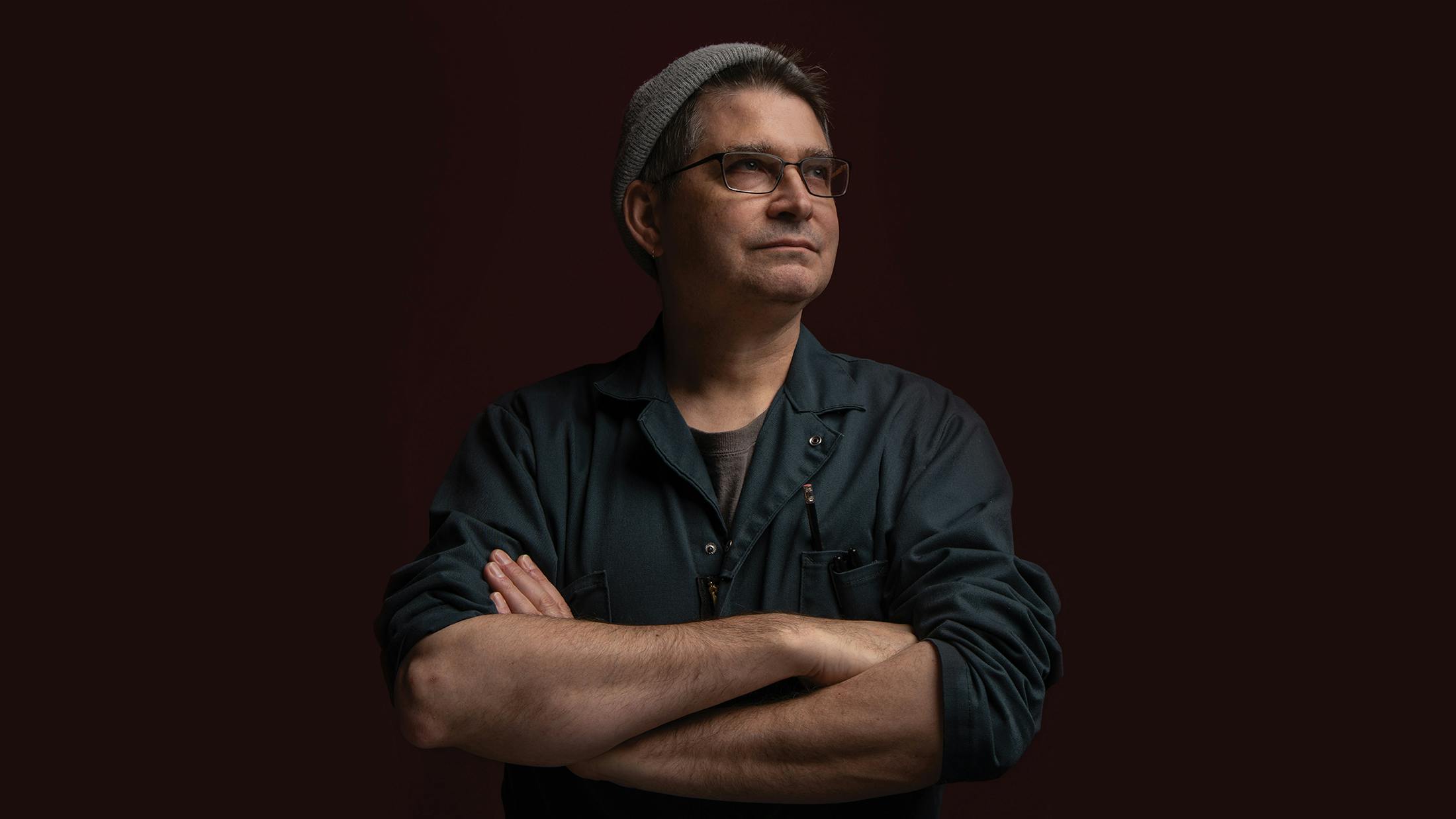The Ramones provided your punk rock epiphany, didn’t they?
“Yeah, they were a real catalyst for me. I didn’t know anything about music except what leaked out of the popular consciousness, so when this band appeared, fully-formed, that played directly into the obsessions of me and my dorky friends – horror films and trash culture, general adolescent misbehaviour and transgressive thoughts – I took to them like a fish to water. It was inescapable that this would be the band and the scene for me. Rock music at the time had a lot of pageantry and pomp attached, and a lot of it struck me as affected nonsense. Then the Ramones appeared, dressed like me and my friends, with no robes or smoke machines, and that seemed so much more powerful.”
Do you remember your first time performing on a stage?
“As soon as I got into punk, I put a band together with my friends. We played some house parties, and did one show at a club, and one show at a high school. They were, predictably, all disastrous. But one thing that I discovered that I think is unusual is that I had no stage anxiety. Coincidentally, around the same time I also realised that other people’s opinions of me had no power over me. As long as what I was doing was honourable in my own mind, then I could do it comfortably, and if other people didn’t get it or didn’t agree with it, that was okay – that didn’t have any effect on me. That’s carried through to this day, because I still don’t give a shit if I get judged.”
You started Big Black as a one-man bedroom project while studying at university. You once claimed that this was because you couldn’t find like-minded musicians “who didn’t blow out of a pig’s asshole”…
“(Laughs) Yeah, plus I was impatient. I’d played in a couple of other bands, but I was only somewhat satisfied with that level of participation, and I wanted to have a band that had its own unique set of ideas. I made a demo tape that was just me and a drum machine, and circulated that, and it didn’t get a lot of interest, but when I pressed it up as a record [1982’s Lungs EP] it became a successful calling card, and I was able to put the band together. It was a genuine collaborative band from that point on.”
Given that you were at college, was Big Black quite a part-time concern initially?
“Making music in a band is still a part-time thing for me. My occupation now is as an engineer working on other people’s records, and operating a recording studio, but I devote as much spare time as I have to the band I’m in, and it was the same back then. I’d either be working with my band, or acting as a local promoter putting shows on, or I’d be contributing to fanzines, or doing artwork and illustrations for my friends. I’m not trying to say I was some incredible polymath, that’s just the way that everyone behaved in the scene at that time. None of the people I met in the music scene in Chicago had any aspirations of being professional musicians. Every one of them was involved in music because we were fans, and we wanted our scene to be incredible. I had no ambitions to be a mogul, I didn’t ever imagine that music could be a career. Many years later, when I did start to meet people with ambitions towards careers in music, it was clear that they were awful people. Their mercenary approach to music was corrupting, and they usually made terrible music.”
